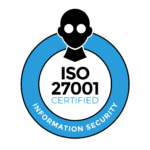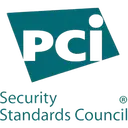The International Traffic in Arms Regulations (ITAR) represents one of the most critical compliance frameworks for companies working with defense articles, technical data, and services. Understanding the costs associated with ITAR audits and compliance is essential for proper budgeting, risk management, and strategic planning.
For organizations handling defense-related products or data, ITAR compliance isn't optional—it's mandatory. The Department of State's Directorate of Defense Trade Controls (DDTC) administers these regulations, and the consequences of non-compliance can be severe: substantial civil penalties, criminal prosecution, debarment from government contracts, and significant reputational damage.
Navigating ITAR audit costs requires understanding both the direct expenses and hidden investments required to establish and maintain compliance. Unlike some other frameworks, there is no single "ITAR certification" issued by the government. Instead, companies must register with DDTC, implement comprehensive compliance programs, and potentially undergo various forms of assessment and validation.
This guide provides a detailed breakdown of ITAR audit and compliance costs across different company sizes and scenarios. We'll examine the key cost components—from initial registration fees to technology implementations and consultant engagements—that shape your compliance budget. You'll gain insights into typical investment ranges, timelines for implementation, and strategies to optimize your spending while maintaining strong compliance.
Whether you're a small startup handling limited technical data or a large defense contractor managing complex international operations, this guide will help you develop a realistic budget for ITAR compliance and understand the factors that can influence your overall investment.
Our analysis incorporates current regulatory requirements, market pricing for specialized services, and practical strategies gathered from companies successfully navigating the ITAR landscape. By the end, you'll have a clearer picture of what to expect as you plan and execute your ITAR compliance program.
Cost components
ITAR audit costs fall into several major categories that companies need to budget for. Understanding these components helps organizations plan appropriately and avoid unexpected expenses during the compliance process.
Readiness assessments typically range from $2,500 to $50,000 depending on company size and complexity. These evaluations identify gaps in your current controls, map your ITAR-controlled items, and produce a remediation roadmap. Small companies might spend as little as $2,500 for a basic assessment, while mid-market organizations should budget $10,000-$25,000 for comprehensive evaluations.
Remediation work represents the largest variable expense in most ITAR compliance budgets. This includes policy development, technical controls implementation, encryption solutions, data segregation, and physical security measures. Small companies might spend $5,000-$30,000 on remediation, while mid-market organizations commonly invest $20,000-$200,000 depending on their technical architecture and existing controls.
External auditor fees for independent reviews typically range from $8,000 to $75,000. While DDTC doesn't issue a formal "ITAR certification," many companies require third-party attestations to satisfy prime contractors or customers. Boutique export control firms generally charge less than large accounting or consulting organizations.
Compliance tools and platforms for managing evidence, policies, and monitoring can cost $5,000-$25,000 annually. These automation solutions reduce manual work but represent an ongoing operational expense. The investment often pays for itself through reduced internal labor costs and audit preparation time.
Internal staff time frequently represents 10-40% of total ITAR implementation costs. This includes program management, IT and security staff hours, legal review, and time spent on foreign person screening and vetting. Many organizations underestimate this component when budgeting for compliance initiatives.
DDTC registration fees are a fixed annual cost for all ITAR registrants. Effective January 9, 2025, Tier 1 registration costs $3,000 annually, Tier 2 costs $4,000, and Tier 3 includes additional per-authorization fees. Every ITAR registrant must include this line item in their budget.
Factors influencing cost
Company size dramatically impacts ITAR audit and compliance costs. Small organizations (1-50 employees) typically spend $5,000-$60,000 in their first year, while mid-sized companies (50-500 employees) invest $50,000-$350,000. Large enterprises with multiple sites or global operations can expect to spend $300,000-$2,000,000+ on comprehensive ITAR programs.
The volume and type of technical data in scope directly correlates to compliance costs. Organizations handling large amounts of ITAR-controlled design data, manufacturing specifications, or software source code require more extensive controls than those dealing with limited technical information. Each additional data type adds complexity and cost.
Physical locations and network architecture significantly impact implementation expenses. Multi-site organizations face multiplied costs for physical security, controlled access areas, and segregated networks. Companies with legacy systems or complex IT environments typically spend more on remediation than cloud-native organizations.
The presence of foreign persons in your workforce drives additional compliance requirements. If non-U.S. persons require access to systems that might contain ITAR data, you'll need more sophisticated segregation controls, licensing arrangements, and monitoring systems. This can increase costs by 25-100% depending on your organization's structure.
Cloud architecture decisions can substantially impact both initial and ongoing costs. Moving to ITAR-ready cloud environments (like AWS GovCloud or Azure Government) typically reduces initial capital expenditures compared to building on-premises enclaves, but involves subscription costs and engineering work to implement properly.
Prime contractor and customer requirements often impose additional controls beyond basic ITAR compliance. Defense prime contractors frequently require adherence to frameworks like CMMC, NIST SP 800-171, or AS9100 alongside ITAR, which increases audit scope and complexity. Implementing reusable controls across frameworks can reduce duplication and save costs.
The frequency of licensing activity affects your DDTC registration tier and associated fees. Organizations with numerous technical assistance agreements, manufacturing license agreements, or other authorizations face higher registration costs and more complex compliance requirements.
Example scenarios
Small defense contractor with 15 employees and a limited ITAR footprint
Acme Engineering is a startup providing technical services to defense contractors. When they received their first contract requiring ITAR compliance, they approached it methodically. First-year costs totaled approximately $35,000, including a $3,000 DDTC registration fee, $5,000 for a basic gap assessment, $15,000 for policy development and staff training, and $12,000 for technical controls implementation.
Their ongoing annual costs stabilized at around $12,000, covering the DDTC registration renewal, maintenance of their compliance program, and periodic staff training. Since their ITAR footprint remained contained to specific projects and a small team, they were able to keep costs manageable.
Mid-sized manufacturer (200 employees) with substantial ITAR workload
Precision Parts Manufacturing designs and produces components covered under the USML for multiple defense programs. Their compliance program required significant investment, with first-year costs reaching $275,000. This included $4,000 for DDTC registration (Tier 2), $30,000 for a comprehensive gap assessment, $150,000 for implementing physical and technical controls across their facility, and $40,000 for staff training and policy development.
Their implementation included creating segregated workspaces for ITAR projects, implementing robust data classification and protection systems, and establishing a dedicated compliance team. Ongoing annual costs run approximately $85,000, including registration fees, compliance staff salary allocations, system maintenance, and regular audits.
Large defense contractor with global operations
Global Defense Systems employs 2,500 people across multiple locations and deals extensively with ITAR-controlled technical data. Their enterprise-wide compliance program investment exceeded $1.2 million in the first year. This covered their DDTC registration fees (Tier 3), comprehensive assessments across all facilities ($120,000), technical control implementation including secure cloud environments and identity management systems ($650,000), staff training programs ($200,000), and supplier audit programs ($150,000).
Their ongoing annual costs approach $500,000, reflecting the complexity of maintaining compliance across a large organization with frequent licensing requirements. However, this investment represents less than 1% of their defense contract revenue and significantly reduces their risk exposure to potential violations that could result in multi-million dollar penalties.
Research university handling limited ITAR technical data
State University's Engineering Research Center occasionally works with ITAR-controlled technical data through defense research grants. Their compliance program cost approximately $80,000 in the first year, primarily focused on creating a secure, segregated environment for handling controlled technical data. This included $3,000 for DDTC registration, $15,000 for assessment and planning, $40,000 for technical controls and secure room creation, and $22,000 for researcher training and policy development.
The university maintains annual costs of approximately $30,000, covering registration renewal, ongoing training for researchers and students, and maintaining their secure research environment. They've kept costs manageable by clearly limiting the scope of what systems and facilities fall under ITAR controls.
Small software company providing specialized tools to defense industry
TechSoft develops specialized software for defense applications. Their first-year ITAR compliance costs totaled $60,000, including $3,000 for DDTC registration, $8,000 for gap assessment, $30,000 for implementing cloud security controls in an ITAR-compliant environment, and $19,000 for staff training and policy development.
Their ongoing annual costs average $25,000, covering registration renewal, cloud environment costs, and compliance program maintenance. They've leveraged ITAR-ready cloud offerings instead of building an on-premises solution, significantly reducing their initial investment while still meeting technical requirements.
Cost-saving tips
Take a phased approach to ITAR compliance. Begin with an internal gap assessment to establish your baseline before bringing in expensive external consultants. This focused internal effort will significantly reduce the time auditors need to spend on discovery, lowering your overall consulting costs.
Narrow your scope precisely and document boundaries. Carefully define which systems, data, and components are actually subject to ITAR regulations rather than over-including systems in your compliance scope. When jurisdiction is unclear, submit a Commodity Jurisdiction request to get formal determination rather than applying costly controls unnecessarily.
Leverage cloud-based ITAR-ready environments. AWS GovCloud and Azure Government offer environments specifically designed for ITAR compliance with contractual commitments that restrict data to U.S. locations and limit operator access to U.S. persons. These solutions can drastically reduce the need for expensive on-premises infrastructure builds while still meeting technical control requirements.
Implement automation for evidence collection and continuous monitoring. Compliance automation platforms that handle evidence collection, asset mapping, and workflow ticketing can significantly reduce manual effort and recurring audit preparation time. While these platforms require subscription fees, the labor savings typically deliver strong ROI.
Map and reuse controls across multiple frameworks. If your organization already implements NIST 800-171, CMMC, ISO, or AS9100 controls (common in the defense supply chain), map those existing controls to ITAR requirements to eliminate duplicate work and leverage your existing compliance investments.
Consider fixed-price consultancy packages. Many boutique export control consultancies offer fixed-price bundles for small businesses or specific compliance tasks. These packages provide budget predictability compared to open-ended hourly consulting arrangements and often include templates that speed up implementation.
Apply for registration fee relief if eligible. DDTC's fee structure includes limited relief options under specific conditions, including potential discounts for small businesses where the registration fee would exceed 1% of annual revenue. Review the current guidelines to determine if your organization qualifies.
Consolidate and optimize supplier management. Rather than conducting separate audits for each supplier, develop standardized questionnaires and requirements that align with your ITAR compliance program. This approach reduces redundant effort and creates consistent expectations across your supply chain.
Conclusion
ITAR compliance represents a significant but necessary investment for organizations handling defense articles and technical data. The costs of non-compliance—which can include severe civil and criminal penalties, debarment from government contracts, and lasting reputational damage—far outweigh the investment required to build and maintain a proper compliance program.
By taking a strategic approach to your ITAR compliance journey, you can minimize unnecessary expenses while still developing a robust program that effectively manages export control risks. Remember that compliance is not a one-time project but an ongoing operational commitment that requires consistent attention and resources.
Thoropass helps organizations streamline their ITAR compliance efforts with our purpose-built platform and expert guidance. Our automated evidence collection, continuous monitoring capabilities, and control mapping features significantly reduce the manual effort required for ongoing compliance maintenance.
Unlike traditional consulting approaches that drive up costs with extensive billable hours, Thoropass provides a predictable subscription model that delivers better results at lower total cost. Our compliance experts have deep experience with defense regulations and can guide your team through implementation efficiently, helping you achieve and maintain compliance without unnecessary spending.
AI-generated content, reviewed for accuracy. Context for this content was sourced from U.S. government publications, industry reports, and specialized export control resources.

Related Posts
Stay connected
Subscribe to receive new blog articles and updates from Thoropass in your inbox.
Want to join our team?
Help Thoropass ensure that compliance never gets in the way of innovation.












.png)